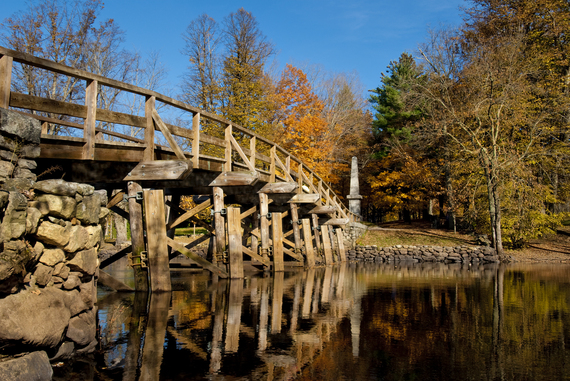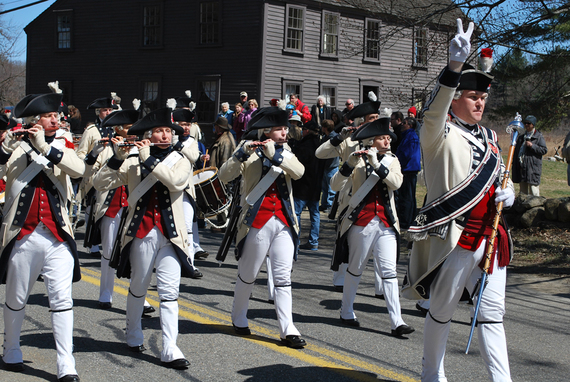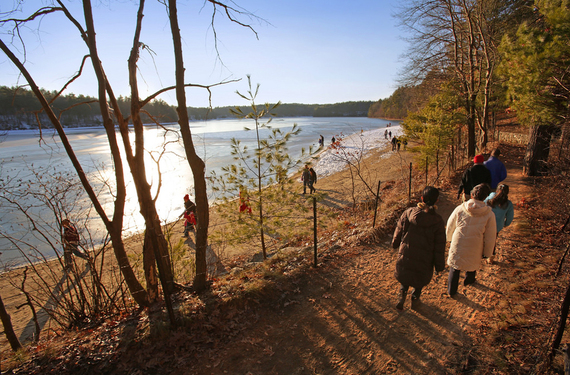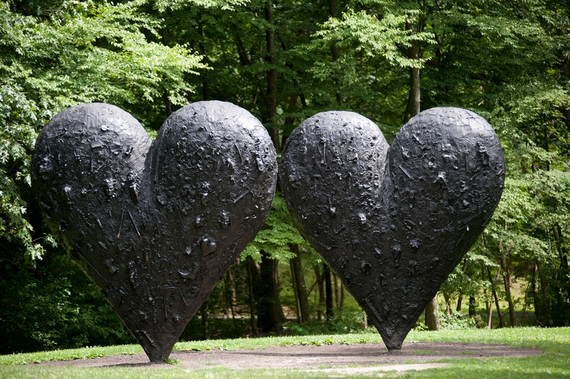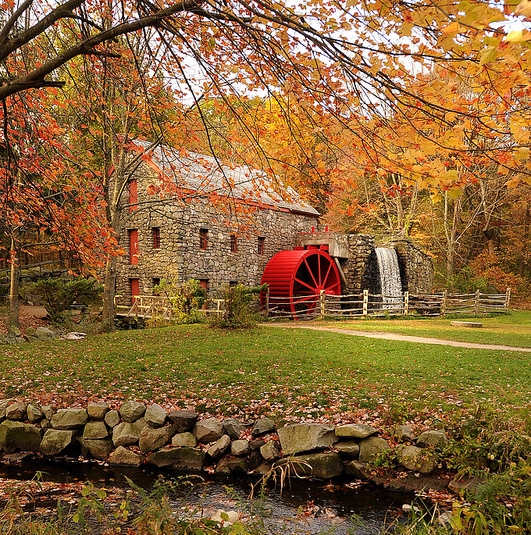By Leigh Harrington, Boston editor for Where®
Unlike Paul Revere, you don't need to look to Boston's Old North Church for two lanterns to see that you should hit the road for Concord and Lexington, Mass. This time around there's no pressure of Redcoats with musket rifles in hot pursuit, and you'll be traveling by car rather than on horseback, but this area about 20 miles west of Boston is one hot, hot spot for history and culture, one that's definitively worth the ride -- just maybe not at midnight. Plan for a relaxing weekend and follow this guide to uncover some of the best experiences in the area.
Revolutionary Roots
Occupying nearly 1,000 acres across Lincoln, Lexington and Concord, Minute Man National Historical Park features a wealth of rich landmarks associated with the American Revolution. Perhaps the most prominent, North Bridge is the site of the romanticized "shot heard 'round the world" of April 19, 1775. From Minute Man Visitor Center, hop on the Battle Road Trail, a five-mile walking path that connects significant landmarks like the Paul Revere Capture Site where the patriot was taken prisoner by British soldiers, the battle site at Meriam's Corner, and the Hartwell Tavern, an authentic Colonial-era home where park rangers demonstrate musket firings.
Lexington Historical Society offers a jam-packed study on the Battle of Lexington. Take the offered public tour and visit three historic homes: the Hancock-Clarke House, a parsonage where patriots John Hancock and Samuel Adams were staying on the night of Revere's warning ride, Buckman Tavern on Lexington Battle Green, where the local militia awaited the arrival of British troops on April 19, and Munroe Tavern, which was occupied by the British following the battle. On Lexington Green, mingle with colonial period costumed guides, who describe the first battle of the American Revolution.
Bone up on local history at Concord Museum, where exhibits run the gamut of interests from Native American culture through pre-Revolutionary America and on to the Trancendentalist movement. In the galleries, see period rooms, decorative arts and Americana, including the special exhibition running through this fall titled, "The Shot Heard Round the World: April 19, 1775."
Literature & The Trancendentalists
Concord's Orchard House is widely recognized by readers as the home of the March family in Louisa May Alcott's famous novel "Little Women." The author herself lived here, but at the time of her residency, her father Amos Bronson Alcott was the more famous member of the family. He was a progressive educator and leader of the Transcendentalist movement, and his teaching philosophies were ahead of their time. Eighty percent of the items inside the house date back to the Alcott occupation; also visit the small schoolhouse next door.
Writer Henry David Thoreau roamed the woods and land surrounding Walden Pond from 1845-1847, and it was here, living in a modest cabin on the pond's northern shore that he recorded his experiences, which later turned into his famous book, "Walden." Today, Walden Pond is a hub of activity, featuring a network of walking trails and daily swimming, fishing and boating.
Not far from Concord Center, the eponymous Ralph Waldo Emerson House served the author from his wedding in 1835 until his death in 1882.
Likewise, it's not too hard to guess who Thoreau Farm is named after. Although the writer didn't live here long because his family relocated to Concord Center, Thoreau's mother grew up here and later gave birth to him in the main farmhouse. Her childhood memories would inspire her son's later writings. Take a guided tour of the house or simply explore the extensive farming grounds.
Sleepy Hollow Cemetery is the final resting place for over 10,000 people, including some of the area's most famous former residents. Thoreau (1862), Hawthorne (1864), Emerson (1882) and Alcott (1888) are all interred at Author's Ridge, while nearby, the Melvin Memorial is dedicated to three brothers of James Melvin who were killed in the Civil War -- it is interesting to note that the memorial is designed by Melvin's childhood friend, Daniel Chester French, best known for his Lincoln Memorial in Washington D.C.
20th-century Art
Bauhaus innovator Walter Gropius settled in Lincoln during a time when he was teaching architecture at Harvard University and built a home there. Today, Historic New England operates tours through the Gropius House, which remains as it was when the family lived there and shows off revolutionary design elements not typically seen in domestic dwellings.
Nearby, deCordova Sculpture Park and Museum is a windfall of modern and contemporary art for culture seekers. The museum's permanent collection covers a wide array of genres from painting to new media, but photography and sculpture are two strengths, and it focuses on regional New England artists, but includes those of national and international stature, too. DeCordova's 30-acre grounds are home to 60 large-scale sculptural installations, an incredible, unique feature.
Where to Stay
Built in 1716 and on the National Register of Historic Places, Concord's Colonial Inn was, for a short time, the home of Henry David Thoreau. The hotel sits right on Monument Square surrounded by many of Concord's most notable historic landmarks, and inside, an old-time atmosphere mingles with modern amenities. If you want a thrill, ask to stay in Room 24 -- it's rumored to be haunted.
Nearby in Sudbury, Longfellow's Wayside Inn has been in operation as an inn since 1716 along the Old Boston Post Road and boasts an incredible past. It was a popular stagecoach stop between Boston and New York, and it is the inn that inspired Henry Wadsworth Longfellow to write his famous book of poems, "Tales of a Wayside Inn," although, at the time, it was known as Howe Tavern. It was also owned for 20 years by car magnate Henry Ford, who worked diligently to preserve the place. Today, stay here in an antiques-filled room, stop by for dinner, tour self-guided exhibits, check out the adjacent grist mill, or grab a pint of local beer inside the cozy Old Bar.
Get there:
Find details for this trip (and more great road trips) at www.wheretraveler.com.
--
More from Where®:
Photo credits: ©Christian Delbert/Shutterstock, ©NPS/Minute Man National Historical Park, ©Massachusetts Office of Travel of Tourism, ©Kindra Clineff/MOTT, ©Ted Fitzgerald/MOTT
